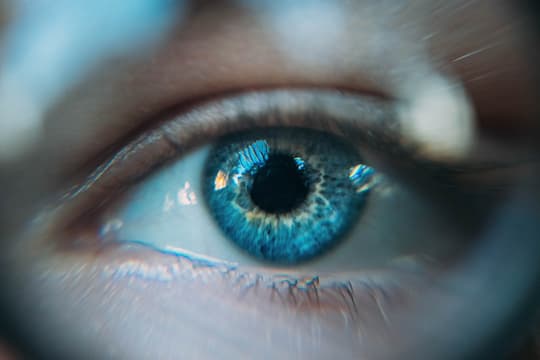Omega-3 fatty acids in the diet can prevent this serious disorder.
Problems with vision can be a sign of omega-3 deficiency, research suggests.
Age-related macular degeneration disorder is an eye disease which is linked to omega-3 fatty acids deficiency.
Macular degeneration is a common medical condition, affecting a large group of the population at age 40 and older.
Deterioration of the macula, an area of the retina, can result in losing central vision but not complete blindness.
A review of nine studies on 90,000 people found that a diet rich in omega-3 fatty acids was associated with a 38 percent reduction in the risk of age-related macular degeneration.
Omega-3 fatty acids are polyunsaturated fats considered to be essential as our body cannot produce them and so they are obtained from the diet.
These type of fats are mostly found in oily fish (fatty fish) and have many health benefits, therefore they known as “good” fats.
Eicosapentaenoic acid (EPA), docosahexaenoic acid (DHA), and alpha-linolenic acid (ALA) are the main types of omega 3 fatty acids.
Fatty fish such as salmon, trout, herring, sardines, and fish oils, including cod liver oil, are high in EPA and DHA.
ALA is found in fats from plant foods such as nuts and seeds — walnuts and rapeseed are good sources of this nutrient.
Age-related macular degeneration is a leading cause of sight loss which affects about 3 million people in the U.S. and more than 600,000 people in the UK.
Early signs of macular degeneration includes fuzzy, blurry and impaired vision, difficulty reading or seeing details like recognising faces or watching television.
A study found that having one or more servings of fish per week reduced the risk of age-related macular degeneration by 42 percent.
The authors said:
“This lower risk appeared to be due primarily to consumption of canned tuna fish and dark-meat fish.”
Dark-meat fish in this study included salmon, sardines, bluefish, mackerel, and swordfish.
Knowing how dietary essential omega-3 fatty acids work can be useful in treating and prevention of different disorders.
It appears that DHA is the key since it generates signaling molecules called docosanoids where there is a disruption within cells due to a disease or an injury.
Docosanoids can protect neurons by controlling specific genes in the brain and retina and asking the genes how to respond.
Moreover, DHA from the liver is concentrated in photoreceptors, a type of cell in the retina that responds to light.
Retinal degeneration including macular degeneration occurs when photoreceptors cannot get enough DHA.
When a gene that controls the DHA uptake is turned off then photoreceptors die and mutation of an amino acid in these cells leads to a disorder of the eyes that causes loss of vision known as retinitis pigmentosa.
Two studies were published in Arch Ophthalmol (Chong et al., 2008); (Christen et al., 2011); the other study was published in the Journal of Biological Chemistry (Asatryan et al., 2017).

